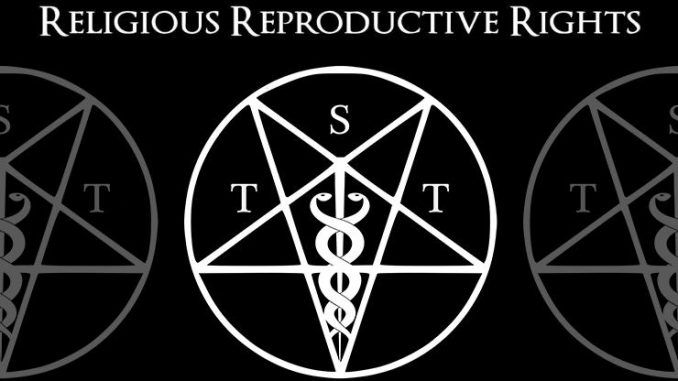
THE STREAM/ CARRIE GRESS-
A new “church” in California just opened: The Church of Potential Life. It was established in response to the Supreme Court Dobb’s decision, MSN Insider reports. It isn’t a church to pray for the unborn, as the title could suggest, but to worship abortion and female autonomy.
The founder, Jackie DesForges, said her “anger and sense of grief over the loss of abortion rights” led her to “create the provocative symbol of hope.”
DesForges, an apostate Catholic, drew from her upbringing by calling the worship “a mass.” Her church uses an altar and iconography, including an appropriated image of the Virgin Mary. “The project,” she explains, “was also an act of reclaiming a sacred space after she left the church and recognized different religious perspectives on abortion.”
The surprising thing shouldn’t be that this “church” exists, but that it hasn’t happened before.
A New, Demonic Model for Women
In my forthcoming book, The End of Woman: How Smashing the Patriarchy Has Destroyed Us, I look at the earliest roots of feminism. Many contemporary feminists speak about how the movement was hijacked by Marxist ideologies in the 1960s and 70s. I decided to look at the philosophical ideas behind feminism’s first wave. What I discovered was shocking. The “pure” movement I’d hope to find has never existed.
Percy Bysshe Shelley (1792-1822) isn’t who people usually think of when it comes to women’s issues. This Romantic poet, known for breaking taboos and seducing women, cemented the three pillars which would animate the feminist movement: 1) to restructure society (which evolved into smashing the patriarchy), 2) free love or the end of monogamy, and 3) the occult.
As the son-in-law of feminist founder, Mary Wollstonecraft (1759 -1797), Shelley wanted to free women from what he, like his mother-in-law, considered slavery. In his fervor, Shelley created the character Cythna, a new kind of woman, who lived without the ties of husband or children. Her one bond was to Satan. She was to become the voice of the feminist revolution.
The Victorian feminist Mathilde Blind (1841–1896) described “Cythna as ‘a new female type’ with no previous parallels in literature. All other women, Blind explained, “had depicted her invariably in her relation as either wife or mistress, mother or daughter.” This new woman was no supplement to man’s nature. Shelley sparked something new in women’s imagination, the ideal of complete female autonomy. Continue reading…
